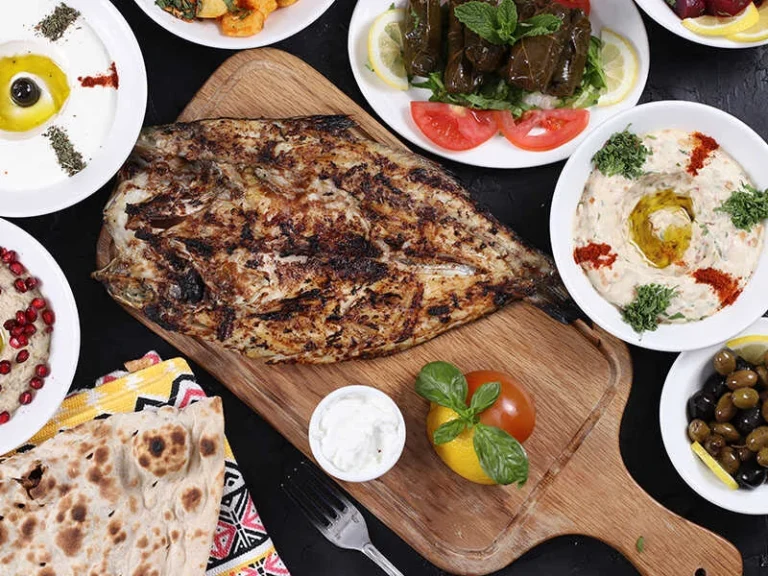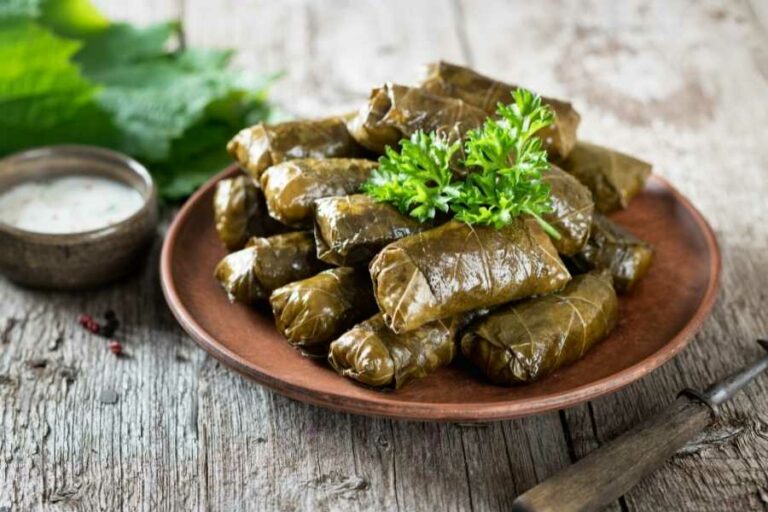Introduction: Iraqi Cuisine and its Neighbors
Iraqi cuisine is a reflection of the country’s long and complex history, which has been shaped by a range of cultures, religions, and traditions. The country’s diverse culinary traditions have been influenced by neighboring countries such as Turkey, Iran, Saudi Arabia, and Syria, among others. Iraqi cuisine is characterized by a unique blend of spices and ingredients that have been used for centuries to create dishes that are both flavorful and nutritious.
Ottoman Empire Influence on Iraqi Cuisine
The Ottoman Empire had a significant influence on the development of Iraqi cuisine, particularly during the early modern period. The Ottomans introduced new ingredients and cooking techniques that transformed the way Iraqis prepared and consumed food. Some of the most popular dishes that were introduced during this time include stuffed vegetables like dolma, kebabs, and baklava. The Ottomans also introduced a range of spices that are still used in Iraqi cuisine today, including cinnamon, cumin, and cardamom.
Persian Influence on Iraqi Cuisine
The influence of Persian cuisine on Iraqi cuisine can be traced back to the pre-Islamic era when the two cultures were closely linked. Persian cuisine has had a significant impact on Iraqi cooking techniques and ingredients, such as the use of saffron, rosewater, and dried fruits. Some of the most popular Persian-inspired dishes in Iraq include kofta, kebabs, and stews. The use of yogurt in cooking, which is a staple in Persian cuisine, is also commonly used in Iraqi dishes such as shish kabob.
Arabian Influence on Iraqi Cuisine
The Arabian Peninsula has had a significant influence on Iraqi cuisine, particularly in terms of spices and cooking techniques. Arabian cuisine has introduced ingredients such as dates, raisins, and nuts to Iraqi cuisine. The use of flatbreads, like Pita and Manakish, is also a common feature in Iraqi cuisine as well as in other Arabian dishes. The influence of Arabian cuisine can be seen in popular dishes such as machboos, which is a rice dish that has been flavored with a blend of spices and cooked with meat or fish.
Turkish Influence on Iraqi Cuisine
The influence of Turkish cuisine on Iraqi cuisine can be seen in many of the dishes that are popular in Iraq today. Turkish cuisine introduced new cooking techniques and ingredients, such as the use of lamb and yogurt, which have become staples in Iraqi cuisine. Turkish-style kebabs and baklava remain popular in Iraq, reflecting the country’s Ottoman heritage. The use of tomatoes and eggplants, which are commonly used in Turkish cuisine, is also a common feature in Iraqi dishes.
Conclusion: Iraqi Cuisine’s Diverse Influences
Iraqi cuisine is a reflection of the country’s rich and diverse history, which has been shaped by a range of cultures and traditions. The influence of neighboring countries such as Turkey, Iran, and Arabia has played a significant role in shaping Iraqi cuisine, introducing new cooking techniques and ingredients that have become staples in the country’s culinary traditions. Iraqi cuisine remains a unique blend of flavors and spices, reflecting the country’s vibrant cultural heritage and its diverse influences.


